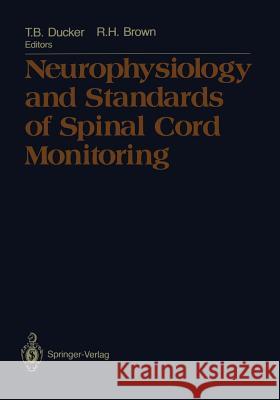Neurophysiology and Standards of Spinal Cord Monitoring » książka
topmenu
Neurophysiology and Standards of Spinal Cord Monitoring
ISBN-13: 9781461283591 / Angielski / Miękka / 2011 / 388 str.
Kategorie BISAC:
Wydawca:
Springer
Język:
Angielski
ISBN-13:
9781461283591
Rok wydania:
2011
Wydanie:
Softcover Repri
Ilość stron:
388
Waga:
0.68 kg
Wymiary:
25.4 x 17.78 x 2.08
Oprawa:
Miękka
Wolumenów:
01











